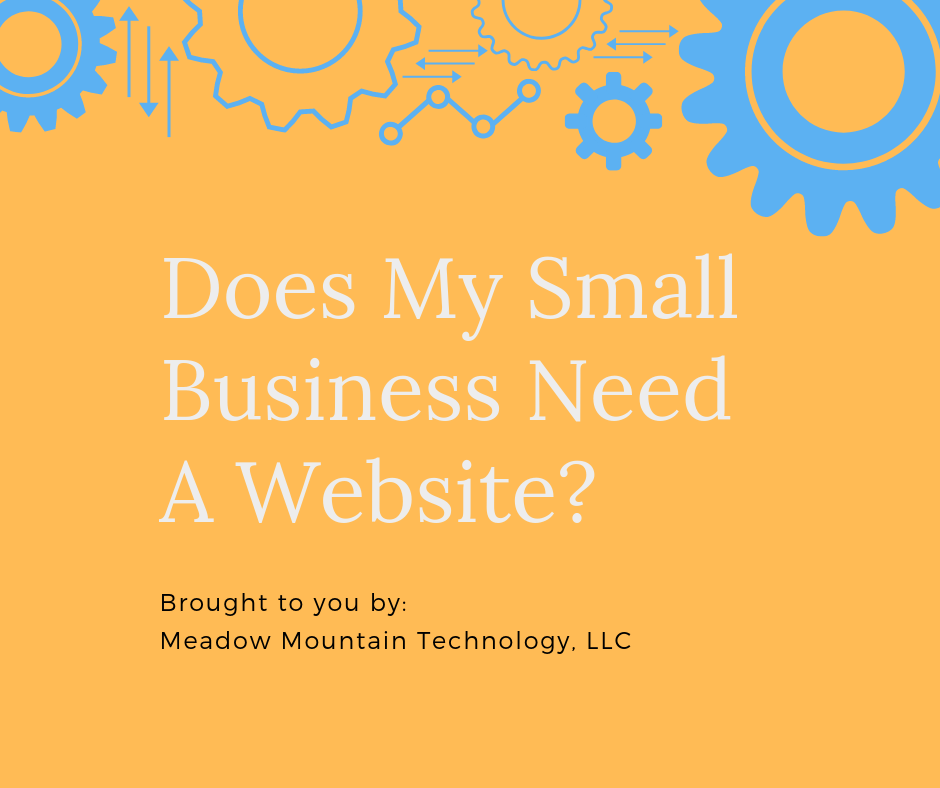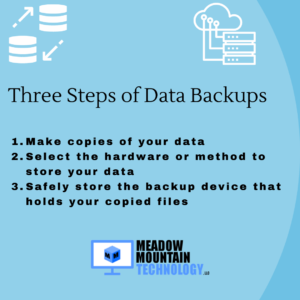
Four Reasons A Small Business Needs a Website
Small businesses face obstacles that restrict their online presence. Some of these obstacles are created by misguided beliefs that a small business does not need a website. We’ve heard customers say “a website isn’t relevant for my business” or “my customers are not online” and even “I use Facebook and that’s enough” as excuses for not having a website. Market research released by reliable sources shows that businesses are not alone in believing that they don’t need a website. That same research analyzes consumer behavior that contradicts these beliefs. Small businesses need a website to help them establish credibility, increase accessibility, have a competitive edge, and increase brand awareness. Consumer behavior is changing across the globe, even for the small business, and it is necessary to keep up with that behavior.
4 Key Reasons a Small Business Needs a Website
- Establish credibility
- Increase consumer accessibility
- Maintain a competitive edge
- Increase brand awareness
A website establishes credibility with audiences.
Most consumers are doing research before making a purchase and they expect a business to have an online presence. Trends are showing that consumers are less likely to buy from a business that doesn’t have a website. In one study, 48 percent of consumers surveyed said they would not even consider buying from a business if it did not have a website. That’s a large number of customers to lose simply by not having a website.
Consumers say that a business looks suspicious without a website, costing businesses crucial credibility. According to a web credibility study from Stanford, 75 percent of consumers admit to making judgments on a company’s credibility based on website design. Market research breaks this data down further to show that consumers are more likely to not consider a business if the website has loading issues, is not mobile friendly, has grammar or spelling errors, or is out of date.
Having an online presence is an easy way for business owners to educate visitors on their products and services. Credibility can be established by linking in customer reviews from Google, Yelp, Facebook, or other outreach efforts. Clients can find a business’s customer reviews easily on the website and see how that business is solving their client’s problems.
A website increases accessibility to services and products
With changing consumer behavior, small businesses can find it difficult to keep up with consumer demands. One of those demands that businesses cannot afford to leave behind is the need for a website. Consumers used to heavily rely on phone or other printed directories to be a quick way for consumers to find their business. However, in a recent study by Blue Corona “in 2019 the number of consumers that go online to find a local business has jumped to 97 percent.” This means a small business needs to be able to show up in local searches in order to be accessible.
“Studies show that between 70-80% of people research a company online
BEFORE
visiting the small business or making a purchase with them”
~Blue Corona
Right now, if using a Google search engine, the top results will always be paid advertisements. The next results are the local search results which will be targeted based on the location specified in the search or when using terms like “near me” in the search, targeted on the searchers geographic location. The results below the local search results are the ranked website pages that have targeted the specific keywords the searcher typed in.
Small businesses that market to their local area need to take advantage of their free Google, Bing, and Yahoo listings. These listings allow a business profile with a link to the website to be displayed in the local search results. Including the link to your phone number, address, website, as well as hours of operation are all free ways to advertise a business on the web. Additionally, endless paid directories exist for the purpose of listing a business‘s website. It is important for the business owner to weigh the costs of these directories against the type of client traffic that they get. For instance, if a local Chamber of Commerce has a directory, this can be far more beneficial to a business that markets locally than to a business looking for mostly global consumers.
Without a website, a business can still appear in the local search results; however, as pointed out above, businesses with websites are far more likely to get consumer traffic because a website by default establishes credibility over businesses without a website.
A website will maintain competitive edge
In today’s marketing environment, most businesses are establishing branding quickly and marketing through multiple channels. A website is a business’s central space where customers can find more information beyond what is available on social media platforms. One of the most customizable and personable channels to market with is a website. This is especially important for businesses trying to sell their products or services over the web.
With a website, a business is not only visible to current clients, but more importantly visible to clients of competing businesses. Remember, customers now have access to businesses that they never would have heard of with a simple search. Failure to have a website will allow the competition to easily surpass a business’s visibility and market reach.
A website increases brand awareness
A small business can use their website to get more precise with marketing, targeting keywords or hot topics that their potential clients would be likely to search. Through Search Engine Optimization (SEO) a small business can develop content (blog posts, news articles, sales advertised on the page, landing pages, etc.) that draw clients in, generating traffic and leads. Data from online advertisements is easily available through several affordable and some even free online tools. These tools allow a business to get a better feel for what content is working on the website versus what is not. Real data on marketing right at your fingertips whereas print and radio are far more difficult to measure. This type of online marketing can be done for free; although there is a learning curve that must be mastered, and it is often easier to leave it to professionals.
In addition to the affordable measures, using paid ads through Google or other search engines, a website can expect to surpass print and radio marketing simply with geographical targeting that is becoming more precise every day. Think about this example. A business pays for a billboard advertisement that is put up on a busy highway. The major drawback of this type of advertising is that the business must rely on one key event: that customers interested in the product or service will drive past this sign to learn about their brand and then take action to later call or make a purchase. A website allows for instant view and click to make a call or purchase, especially as people are moving to more mobile devices.
With geo and interest targeting available in online advertisements, a business enhances the precision of their advertising. GoogleAds for example, allows a business to target a specific city or even an entire region. GoogleAds further breaks down the target audience based on interests meaning that it is going to work to show the advertisement to people who are already looking for the type of service or product the business offers. This method of online marketing is far more precise than the billboard example because the ad will be shown to people who are already interested in the product or service instead of waiting for the right customer to drive past the sign.
What should a small business take away from this?
A website can and will increase brand credibility, accessibility, competitive edge, and provide a more affordable and precise marketing experience. Building a website does not need to be overwhelming and it does not have to be overly expensive to meet marketing needs. Having a good website is important for many industries, large and small



